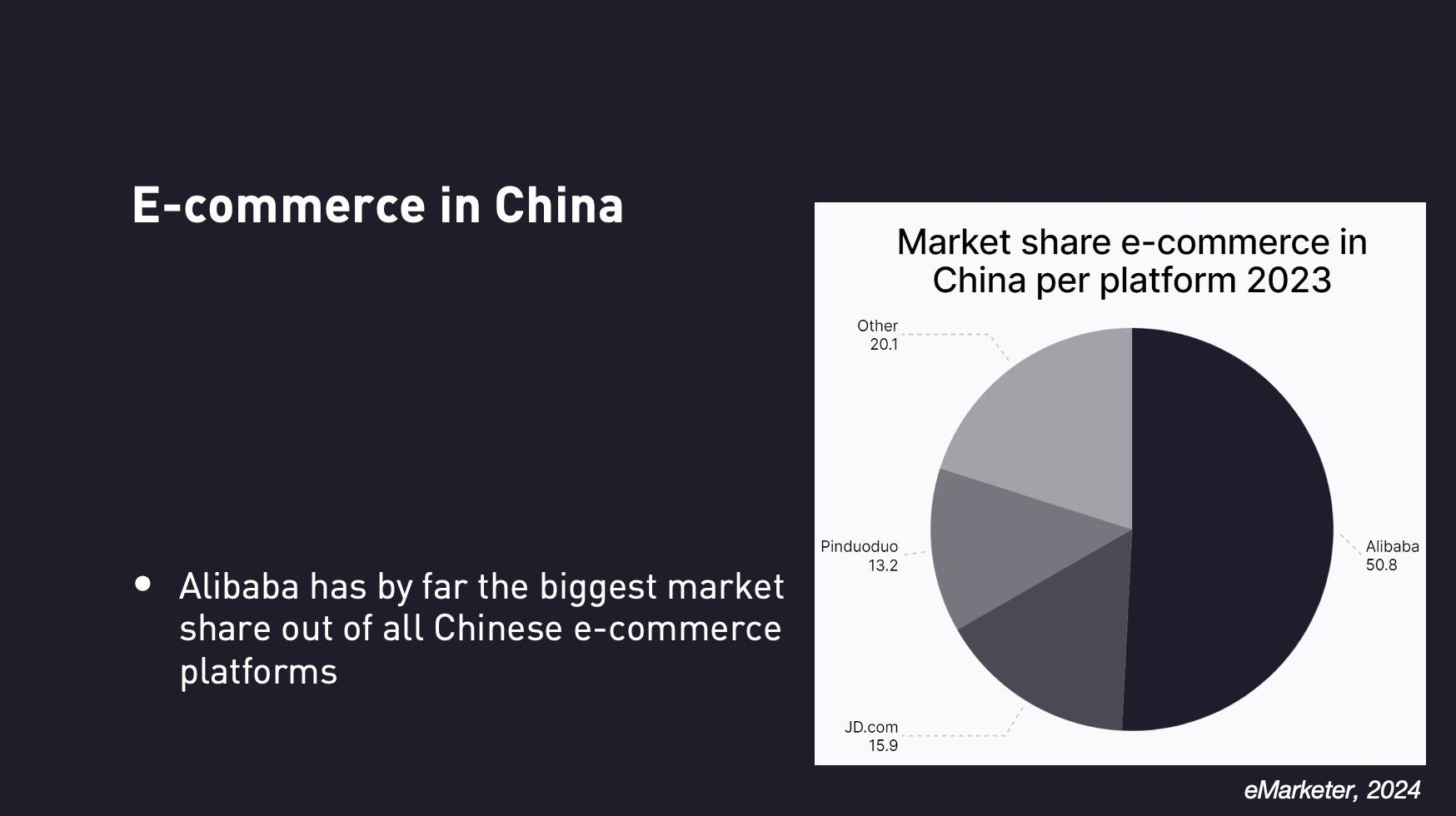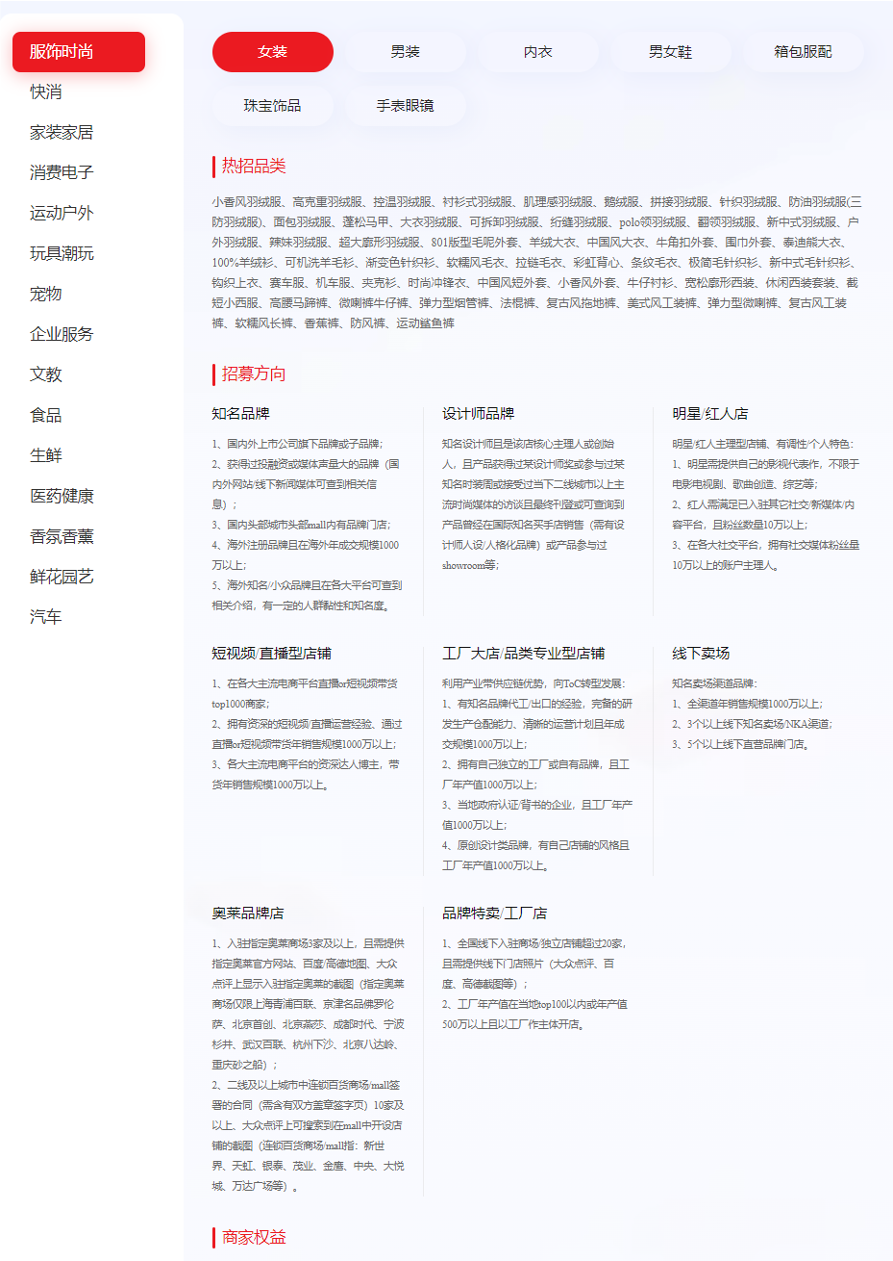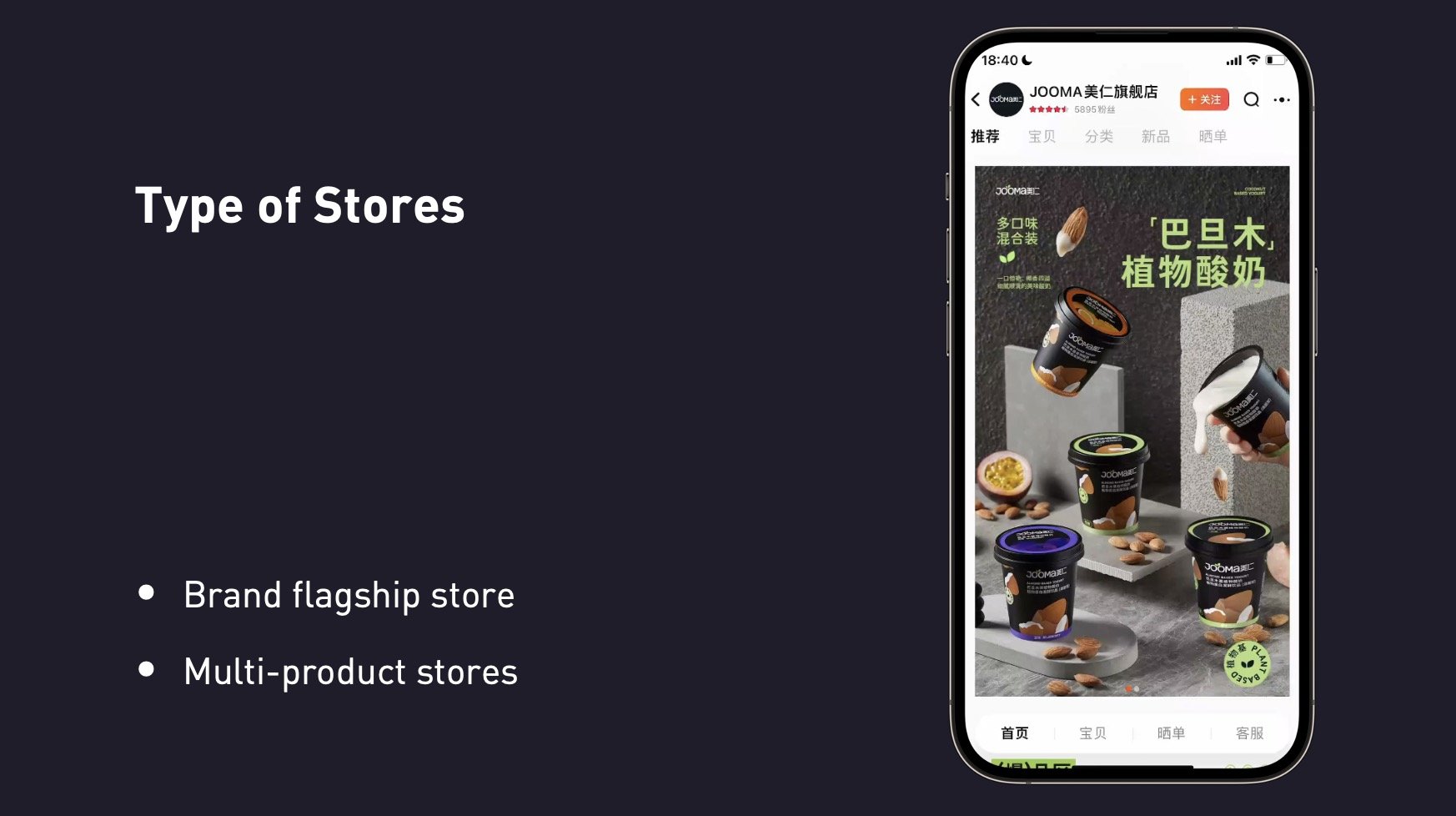Introduction to Tmall
In China, a few e-commerce giants dominate the market, with Tmall leading the charge.
Why Tmall Matters
The Chinese do not have access to much of the Western internet. While in the West, customers shop on individual brand websites, Amazon, and smaller e-commerce sites, in China, nearly all online sales occur through a few giant e-commerce platforms. Why? Trust is the primary reason. After experiencing numerous scandals, the Chinese now prefer platforms that can guarantee certain securities.
Tmall, Taobao, Alibaba or Aliexpress?
To understand these platforms better, let's clarify the terms first. Tmall, Taobao, Alibaba, and Aliexpress all operate under the Alibaba Group umbrella. Alibaba is the parent company overseeing these platforms. Aliexpress targets Western customers by offering Chinese-manufactured products with low shipping costs. It is similar to an international version of Taobao but on a smaller scale.
Taobao is a vast marketplace where individuals and companies sell a wide range of goods, from low-cost items to luxury products. Tmall is a specialized section within Taobao dedicated to brands and verified businesses, providing a better platform for high-quality and luxury goods. Both Taobao and Tmall are accessible via the same app and website, with their products appearing side-by-side in search results.
Market Dominance
Taobao and Tmall jointly account for the majority of online retail sales in China. This encompasses everyday household items to luxury goods. Tmall, with its focus on brand sales, dominates the high-end market, making it particularly important for foreign brands seeking to enter China. Understanding Tmall's dominant position is crucial for any business strategy targeting Chinese consumers. Tmall's extensive reach and brand-oriented approach have solidified its reputation as the go-to platform for high-quality products in China.
Choosing Between Taobao and Tmall
For brands, especially international ones, establishing a presence on Tmall is advantageous over Taobao. Tmall’s rigorous verification process assures consumers of product authenticity, crucial in a market plagued by counterfeit goods. Regular Chinese consumers prefer Tmall due to its stringent measures against counterfeiting, ensuring they receive genuine products. As a result, Tmall stores are often prioritized in search results, providing better exposure and higher visibility.
Beyond trust and visibility, Tmall offers unique promotional tools, such as banners and homepage features, which are not accessible to Taobao shops. These promotional advantages enable brands to enhance their presence and reach a broader audience. Furthermore, Tmall’s comprehensive verification process includes providing trademarks, product certifications, and detailed company information, including photographs of factories and products, which bolsters consumer confidence in the authenticity of the products offered.
Cost and Requirements
Setting up a store on Tmall involves substantial initial investments and ongoing costs. Typically, this includes a security deposit, which is around 6,000 EUR and refundable if the store is closed. The annual fees range from 4,000 to 8,000 EUR, varying by product category and tied to sales performance. A sales commission approximating 5% on each sale should also be factored into your pricing strategy.
Additionally, Tmall requires thorough documentation for store registration, such as proof of trademarks and product certifications, detailed company information, and photos of the factory and products. Operational requirements involve maintaining timely customer service, efficient logistics for shipping, and handling returns efficiently. Despite the higher initial costs and operational demands, the trust and credibility afforded by Tmall often justify these investments. Businesses can gain significant trust and credibility by meeting these stringent requirements, which translates to higher sales and a better customer relationship.
Types of Tmall Stores
Tmall offers flexibility in choosing between single-brand flagship stores and multi-brand stores. Single-brand flagship stores are ideal for brands seeking to establish a dedicated presence, perfect for building brand recognition and customer loyalty. Multi-brand stores are suitable for businesses selling various brands or categories, such as supermarkets or department stores.
Brands also have the option to choose between cross-border stores (Tmall Global) and domestic stores (Tmall China). Cross-border stores allow foreign brands to sell directly to Chinese consumers without obtaining local certifications, making them ideal for products like cosmetics and food supplements. The primary advantage of cross-border stores is the ability to bypass Chinese certifications and use foreign trademarks. However, cross-border stores also bring higher operational costs, different tax structures, and complex logistics, such as being limited to bonded warehouses.
Domestic stores, which require Chinese trademarks, are generally preferred due to lower operating costs, in-country logistical simplicity, and greater trust among consumers. Some brands, particularly in the cosmetics sector, start with a cross-border store, obtain necessary local certifications, and then transition to a domestic store to optimize operations and costs.
Check out our guides on opening a store on Tmall China and Tmall Global, detailing all the necessary requirements.
Store Customization and Promotion
Tmall allows businesses to extensively customize their online stores, providing significant control over their branding and customer engagement strategies. Brands can design their store homepage to reflect their identity, including sections for featured products, promotions, and loyalty programs.
Promotion on Tmall involves numerous advertising options, such as brand banner advertising in search results, keyword bidding to drive targeted traffic, and homepage ads for maximum exposure. These promotional tools are complemented by social media and influencer collaborations, which are essential for driving traffic to Tmall. Unlike Western e-commerce strategies, success in China requires an integrated approach that combines Tmall advertising with social media presence and influencer partnerships.
The advertising setup on Tmall is very complex, offering extensive customization based on demographics, shopping history, and other factors.
Conclusion
Tmall stands as the leading e-commerce platform in China, offering unmatched reach and credibility for brands. Establishing a presence on Tmall involves navigating higher costs and stringent requirements, but the advantages in terms of trust and exposure make it a worthwhile investment. The platform’s extensive reach, combined with its focus on brand authenticity and customer trust, positions Tmall as a crucial element in the e-commerce strategy of any brand looking to penetrate the Chinese market.
Strategically, businesses need to thoroughly understand the market, leverage Tmall’s promotional tools effectively, and invest in non-stop customer service to differentiate themselves in this competitive landscape. While the setup costs and operational demands are significant, the long-term benefits of establishing a strong, trustworthy presence on Tmall outweigh the initial challenges.
For detailed insights into other Chinese platforms or further strategic guidance, explore our additional content or reach out to us directly.






